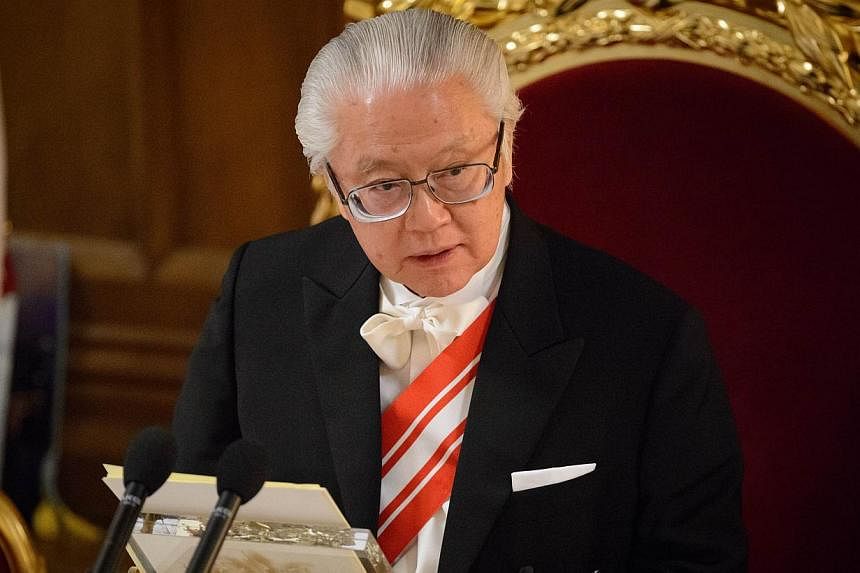LONDON - Singapore and Britain will renew a partnership in scientific research first formalised in 2004, President Tony Tan Keng Yam announced in London on Wednesday.
The tie-up, known as the United Kingdom-Singapore Innovation and Research Partnership, entails students and researchers from both countries going on exchange programmes, and sharing research and development activities and infrastructure.
There will also be joint funding of research.
An earlier agreement to partner in scientific research was made in 2004 by Prime Minister Lee Hsien Loong and then British Prime Minister Tony Blair.
Announcing this renewed tie-up yesterday at Britain's premier science institution, the Royal Society, Dr Tan noted that both Singapore and Britain face similar challenges such as urbanisation, ageing, health care and environmental sustainability.
He said Singapore sees itself playing a role in the scientific search for answers, and has established research collaborations with many world-renowned universities including Cambridge University in Britain.
"Such challenges cannot be solved by any one nation and the future of research lies in international and multidisciplinary collaborations," said Dr Tan, who is on a state visit to Britain this week.
Yesterday, the Royal Society conferred on him the King Charles II medal, given to foreign heads of state who have played a big role in furthering scientific research in their country.
Only four others - Emperor Akihito of Japan in 1997, Indian President Abdul Kalam in 2007, German Chancellor Angela Merkel in 2010 and Premier Wen Jiabao of China in 2011 - have received the medal.
Dr Tan, a mathematics and physics lecturer by training, recalled taking into account the impact of science as a Cabinet minister overseeing education, trade and industry and defence policy.
In his address to the Royal Society, whose fellows include Isaac Newton, Albert Einstein and Sir Stamford Raffles, who was also a botanist, Dr Tan said Singapore's development had been enabled by science, such as water desalination technology.
Dr Tan also said that investment in research and development has doubled since 1991 to 2.3 per cent of the country's gross domestic product now.
Royal Society president Paul Nurse, in paying tribute to Singapore's scientific achievements, called the Republic a "success story in global science and innovation". He noted Dr Tan's role in transforming research and development in Singapore, including as chairman of the National Research Foundation.
Yesterday, Dr Tan was also hosted to lunch by British Prime Minister David Cameron at 10 Downing Street, the official residence of British prime ministers.
They discussed issues such as the European Union-Singapore Free Trade Agreement and how to enhance science, research and education cooperation, and also exchanged views on regional and international developments.
This included the ongoing Ebola crisis, and lessons learnt from Singapore's experience in handling the Severe Acute Respiratory Syndrome crisis in 2003.
The President's schedule for the rest of Wednesday included a Deepavali celebration by the Singapore-United Kingdom Association, a visit by opposition leader Ed Miliband, as well as a banquet hosted by the Lord Mayor of the City of London Fiona Woolf.


